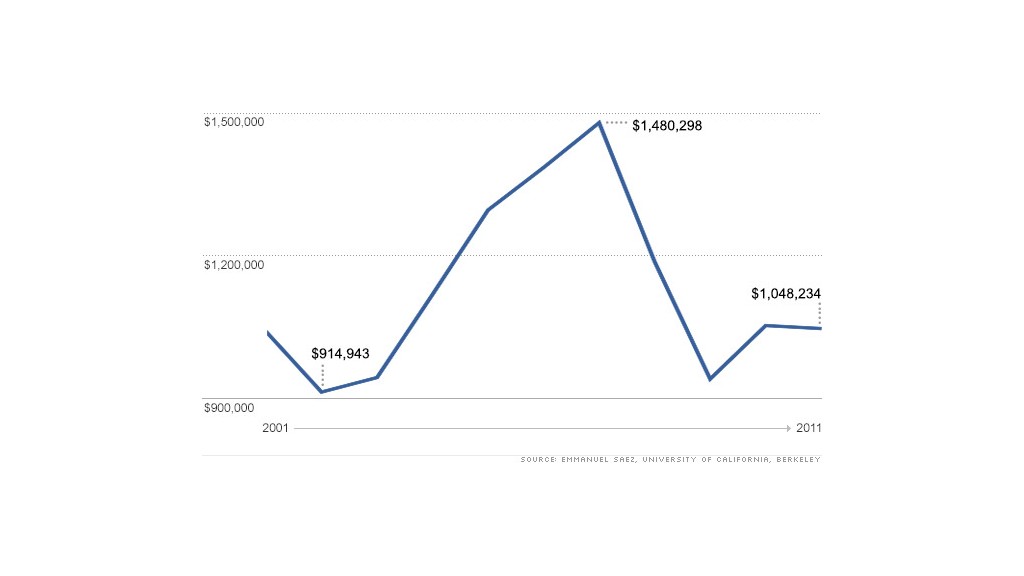
The top 1% of America's earners saw their average income rise by 11% during the economic recovery, but hold the Dom Perignon.
The annual earnings of America's economic elite remain way below their 2007 peak, according to a recent study. These folks took home an average of $1.05 million in 2011, down nearly 30% from the $1.48 million they averaged four years earlier, before the Great Recession took hold.
Don't feel too bad for the wealthy, though. The bottom 99% have seen their earnings drop a more modest 12% from their peak four years ago, but their income continued slipping, according to Internal Revenue Service data crunched by Emmanuel Saez, an economics professor at University of California, Berkeley.
Those in America's bottom 99% had an average income of $42,826 in 2011. That's essentially flat compared to two years ago -- meaning that while America's richest enjoyed a rebound, others have not. Their average income is the lowest it has been since 1995, compared to 2003 for the top 1%.
Most of the gains for the country's top earners came in the first year of the recovery, between 2009 and 2010, thanks largely to the stock market's revival. Growth flattened after that, but Saez expects 2012 to be another good year for the privileged few.
"Top 1% income will likely surge, due to booming stock prices, as well as retiming of income to avoid the higher 2013 top tax rates," he wrote in a recent report. "Bottom 99% will likely grow much more modestly."
Related: Where the rich people live
The declining fortunes of many American workers predates the Great Recession, according to Frank Levy, a labor economist at the Massachusetts Institute of Technology.
Until the 1980s, employees benefited as productivity improved. That changed as blue-collar jobs dried up and unions receded.
"The productivity gains don't translate into wage gains for workers," Levy said. "That's not always been true, and is not always true in other countries."


